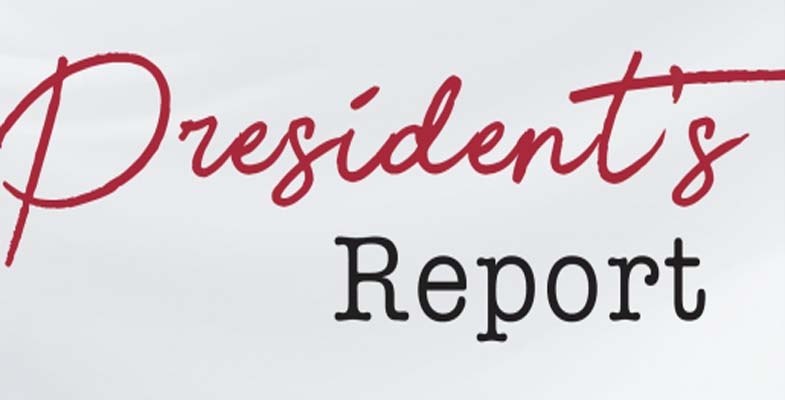Welcome to the annual report on the 44th year of operation of STEP Inc. Our lives have, in theory, returned to normal during 2022 apart from the lingering effects of the COVID virus. One disruptor has been the persistent rain with 2022 achieving the record of being the wettest year in Sydney since records began. The effects on our bushland will be apparent in years to come.
The political landscape has brightened considerably at the federal level. We await the implementation of new environment policies in relation to biodiversity that the 2021 State of the Environment Report revealed to be very poor. We hope for changes at the state level following the election due in March 2023.
Looking back over 2022 I am surprised by how busy this year has been with the resumption of most activities for members and plenty of demand for submissions and meetings.
Activities
Talks: After several attempts were stymied by COVID we finally managed to arrange a talk by Shane Fitzsimmons, Commissioner of Resilience. Ironically this took place in February just before the severe flooding events on the north coast. He gave a vivid description of the behind the scenes management of the Black Summer fires, particularly the stress placed on the emergency personnel.
Four other talks were held on the role of fungi in ecosystem health and the need to include fungi in bushland restoration programs, banksia regrowth after fire, threatened plant translocation and taxonomy.
Walks: We scheduled eight walks that featured local plants and indigenous knowledge. Unfortunately, two had to be cancelled because of bad weather. We thank our volunteer leaders, David Roberts, John Martyn, Greg Taylor, Helen Logie and Fran Rein who shared their local knowledge and Beverley Gwatkin who has organised these walks.
Publications: We are still offering a year’s free membership to anyone who buys a book or map. Sales of our maps is still strong and there is a steady demand for our books.
The supply of Middle Harbour North maps has now run out. We plan to complete a reprint early in 2023.
Committee
The STEP committee has, as always, been a great group of people to work with. We owe a huge thank you for all their efforts.
We thank Jim Wells for keeping track of our finances and compiling monthly finance reports. John Burke and Trish Lynch continue to keep Twitter and Facebook up to date and find lots of interesting items to add on a regular basis.
There have been several issues to review this year, often this is in association with other groups. The contribution of all committee members has been valuable. As always life would be easier if we could get more members on the committee!
Accounts
The net cash balance at the end of the financial year has increased compared to last year because last year’s fee holiday reduced our revenue.
The Environment Protection Fund (EPF) balance is on hold in case a major issue arises. We need to maintain this separate fund that is part of our deductible donation status. The Fund’s purpose is to support our environmental objectives. We received a total of $530 in donations in the past financial year.
Our general fund can be used to support educational projects as well as the EPF. We are keen to support more environmental projects so please contact us if you have any ideas.
Again we thank Allan Donald, Chartered Accountant for his completion of the audit on a pro bono basis.
Newsletter
We are continuing to publish five issues of the newsletter, STEP Matters, each year with most members receiving a pdf version via email. Links to individual topics are also included in the email and are on our website so anyone can pick out particular articles of interest. These articles also have links to previous articles on related topics.
While the newsletter concentrates on local issues and events we also cover broader national environmental issues that affect us all. We aim to be educational but not too technical. I hope they are of interest, but feedback is welcome. Also, contributions from members about local events and developments can be published in the newsletter or on Facebook.
Education grants
We did not receive any applications for the John Martyn Research Grant for 2022 and hope there will be more to consider in the future. This grant supports student research in an area relating to the conservation of bushland. In the end we awarded a grant to one of the applicants from a previous year to continue her work at the University of NSW on threatened species conservation through the use of translocation focussing on Hibbertia spanantha.
For many years STEP has been donating a prize in the Young Scientist Awards run by the NSW Science Teachers Association. The selection of a winning project out of a wide range of ecological issues is an interesting exercise. This year’s award went to a project on the use of organic methods to reduce heavy metals in waterways.
Advocacy
The major issues we have been working on are synthetic turf as part of the Natural Turf Alliance and mountain bike track plans and illegal activity. We are still waiting for the environmental review for the synthetic turf development at Norman Griffiths Oval. Major submissions were made on the Hornsby Quarry and Westleigh Park developments, Ku-ring-gai Urban Forest Strategy and NPWS cycling strategy. The Mirvac development at West Pennant Hills continues to need scrutiny and submissions.
Conclusion
A community group like STEP works best with many lines of communication. We enjoy a good relationship with other community groups and local council staff. Information sharing is an important part of our work. To that end we appreciate feedback from our members and reports on local issues that we may not be aware of. It is becoming harder to keep track of local developments as the local newspapers have shrunk considerably.

